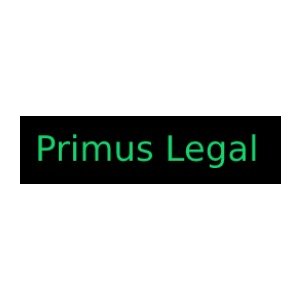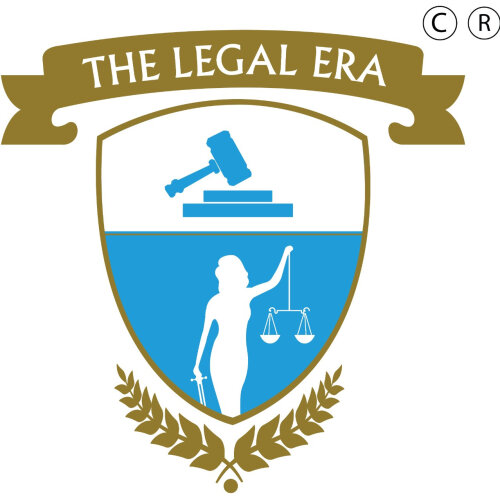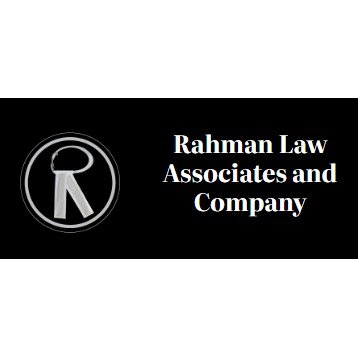Best Arrests & Searches Lawyers in Bangladesh
Share your needs with us, get contacted by law firms.
Free. Takes 2 min.
Or refine your search by selecting a city:
List of the best lawyers in Bangladesh
About Arrests & Searches Law in Bangladesh
The legal framework governing arrests and searches in Bangladesh is primarily enshrined in the Code of Criminal Procedure, 1898, and the Constitution of Bangladesh. These laws aim to balance the enforcement of criminal law with the protection of individual rights. The principles outlined in these laws provide guidelines on how law enforcement agencies should conduct arrests and searches, thereby preventing abuse of power and ensuring due process.
While the police have the authority to arrest and search individuals, such actions typically require a warrant, as per Article 33 of the Constitution. However, there are instances under specific legal provisions where arrests and searches can be conducted without a warrant. Understanding these provisions is crucial for navigating the legal landscape of arrests and searches in Bangladesh.
Why You May Need a Lawyer
There are several situations where legal assistance may be necessary regarding arrests and searches:
- If you have been arrested and need to understand your rights and the legal process that follows.
- If you believe your arrest was unlawful and want to challenge it in court.
- If your property was searched without a warrant and you suspect it was illegal.
- If you are facing charges based on evidence obtained from a search and you want to contest its validity.
- If you wish to report misconduct or abuse of power by law enforcement during an arrest or search.
Obtaining prompt legal advice can help protect your rights and ensure that the proceedings comply with legal standards.
Local Laws Overview
The following are key aspects of local laws relevant to arrests and searches in Bangladesh:
- Arrest with a Warrant: Generally required unless falling under exceptions such as suspicion of a cognizable offense.
- Arrest without a Warrant: Permissible when an officer suspects an individual of committing a cognizable offense or to prevent an individual from escaping justice.
- Search Warrants: Required to search premises or individuals, although certain circumstances permit warrantless searches, such as urgent situations preventing evidence destruction.
- Individuals' Rights: Include the right to be informed of the grounds for arrest, the right to legal counsel, and protection from inhuman treatment.
- Detention Guidelines: Ensure that detainees are produced before a magistrate within 24 hours of arrest, excluding travel time.
Frequently Asked Questions
What should I do if I am arrested?
Remain calm and politely ask for the reason for your arrest. Understand your rights, such as the right to legal counsel, and refrain from making statements without a lawyer.
Can the police search my home without a warrant?
In most cases, a warrant is required for a home search. Exceptions include circumstances involving immediate threats or suspicion of a cognizable offense.
What are my rights during an arrest?
You have the right to be informed of the charges, the right to consult a lawyer, and the right to be presented before a magistrate within 24 hours.
How can I find out if a warrant was legally issued?
You or your lawyer can verify the legality of a warrant by checking its issuance statute and the presence of a magistrate's signature.
Can I challenge an illegal arrest or search?
Yes, you can file a complaint or pursue judicial remedies to challenge the legality of the arrest or search.
What should I do if my property is confiscated during a search?
Request a detailed receipt of confiscated items and consult a lawyer to understand your options for retrieving your property.
Can evidence obtained illegally be used against me?
Generally, evidence obtained unlawfully can be contested in court. Courts may choose to exclude such evidence in legal proceedings.
What happens if the police violate my rights?
You can lodge a complaint with higher authorities or initiate legal action for violations of rights during arrest or search.
How can I ensure fair treatment if I'm detained?
Stay informed of your legal rights, seek legal assistance, and document any mistreatment for future legal action.
Are there any time limits on detention without charge?
Yes, the law mandates that you must be produced before a magistrate within 24 hours of your arrest, excluding travel time.
Additional Resources
Here are some resources and organizations that can be helpful:
- Bangladesh Legal Aid and Services Trust (BLAST): Provides legal aid and assistance for those needing help with arrests and searches.
- National Human Rights Commission: Monitors rights violations and can offer assistance if your rights are infringed during an arrest or search.
- Police Headquarters Bangladesh: A source for information on police conduct and legal procedures related to arrests and searches.
Next Steps
If you need legal assistance for matters concerning arrests and searches in Bangladesh, consider taking the following steps:
- Contact a lawyer immediately to ensure your rights are protected from the onset.
- Document all interactions with law enforcement officers and any procedural irregularities.
- Explore legal aid services if financial constraints hinder your ability to hire a private lawyer.
- Follow up with the arresting agency or magistrate to understand the legal basis for the arrest or search.
Consulting with knowledgeable legal counsel familiar with Bangladeshi laws will ensure you receive guidance tailored to your specific situation.
Lawzana helps you find the best lawyers and law firms in Bangladesh through a curated and pre-screened list of qualified legal professionals. Our platform offers rankings and detailed profiles of attorneys and law firms, allowing you to compare based on practice areas, including Arrests & Searches, experience, and client feedback.
Each profile includes a description of the firm's areas of practice, client reviews, team members and partners, year of establishment, spoken languages, office locations, contact information, social media presence, and any published articles or resources. Most firms on our platform speak English and are experienced in both local and international legal matters.
Get a quote from top-rated law firms in Bangladesh — quickly, securely, and without unnecessary hassle.
Disclaimer:
The information provided on this page is for general informational purposes only and does not constitute legal advice. While we strive to ensure the accuracy and relevance of the content, legal information may change over time, and interpretations of the law can vary. You should always consult with a qualified legal professional for advice specific to your situation.
We disclaim all liability for actions taken or not taken based on the content of this page. If you believe any information is incorrect or outdated, please contact us, and we will review and update it where appropriate.
Browse arrests & searches law firms by city in Bangladesh
Refine your search by selecting a city.

















